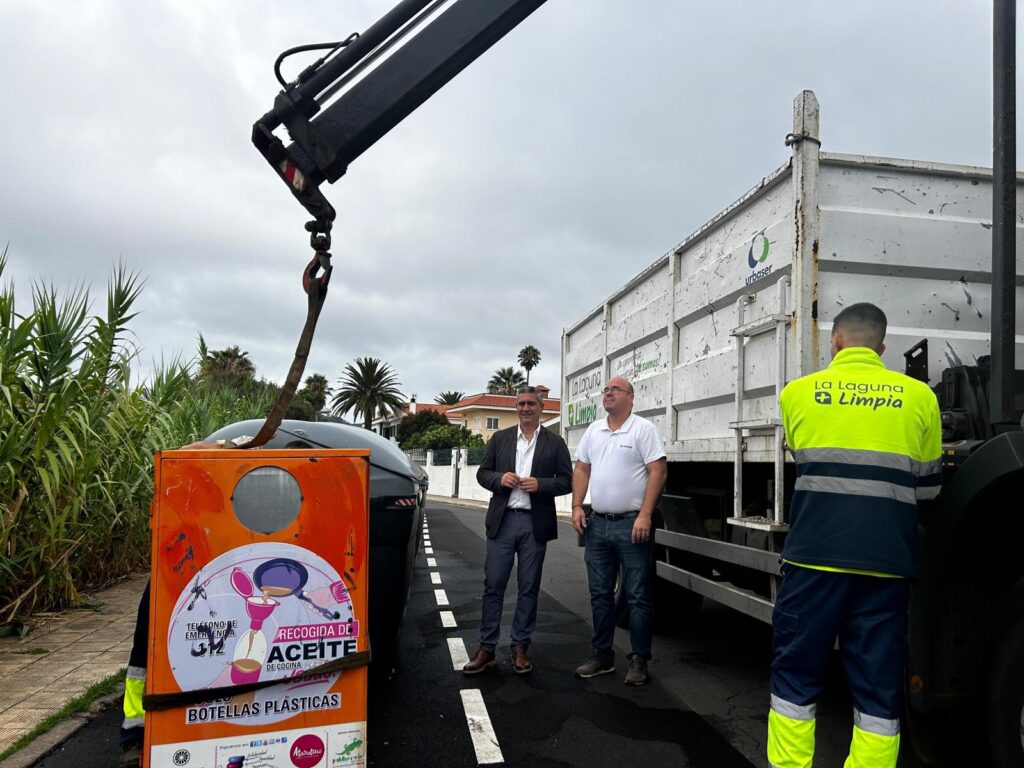Santa Cruz de Tenerife 27 Feb. (Europa Press) –
The Plenary Chamber of the Parliament of the Canary Islands convened this Thursday with a select group of students from IES La Isleta in Gran Canaria. They presented their educational initiative ‘Feel the Islet: Living to Understand. Ambassadors for Change’, highlighting their plea regarding the treatment of migrant minors: “We only request humanity.”
In a manifesto delivered by Daniela Rodríguez, Irene Rodríguez, and Jaydan Hernández, they urged the President of the regional assembly to “stop politicising human lives”, advocating for the establishment of a “feasible and lawful” reception plan that promotes a culture of welcome on the islands, ensuring that the dignity of migrants “does not depend on a piece of paper”.
“We remind you that you were once children who dreamt of a better world. Now, we are citizens of today with the power to instigate change: please, we simply request humanity!” they expressed.
The students from the islet indicated that since the establishment of the Canary Islands’ reception centre in their neighbourhood, the tensions between local residents and the migrant population have escalated, resulting in increased “hatred, remarks, and racist behaviours.”
They elaborated that this sentiment permeates parents, grandparents, uncles, and friends, who are “victims of a narrative instilled through media and political agendas”, contributing to a “culture of hate.”
In addressing the representatives of various parliamentary groups present, the young individuals from the Islet called for “exemplary behaviour” in their political endeavours, initially focusing on “being mindful of the language used” and subsequently implementing “effective and equitable actions” to promote inclusion.
“Do not replace individuals with statistics, children with acronyms, and do not talk about people as if they were packages,” the group of students implored, vocally expressing their frustration as they “do not know what else to do” to achieve a fairer situation, given the considerable challenges posed by “present-day society.”
Astrid Pérez, the president of the Canarian Parliament, conveyed to the young attendees that “within this Chamber, all parliamentary groups, every single political party, work and legislate for the common good, especially for the dignity of all individuals residing here, regardless of their origins.”
“We strive to legislate for peaceful coexistence and to ensure that all individuals who arrive in our territory without resources can lead the best life possible,” Pérez remarked.
About the Project
Tayde Fleitas, a teacher at IES La Isleta and project coordinator, explained that this initiative, which began under a different name two years ago, aims to extend beyond the inclusion of migrants residing in the neighbourhood, addressing other pressing social issues such as climate change and gender equality.
Among the activities undertaken, workshops focusing on bicycle repair, waste collection, and tackling invasive plant species stand out. “These are sustainable means to coexist with migrants,” he added.
“We believe that hate speech has become excessive; we encounter it daily at the institute, and we must combat it,” he concluded.
Among the attending students, Jayden Hernández highlighted the “privilege” that comes with participating in the initiative, particularly in a world rife with “total racism.”
Regarding their feelings when they hear politicians refer to migrant minors as “just numbers,” he described a disconcerting emotion, as though it were directed at them. “These are minors who come not to disturb but to seek a better life. I believe we should welcome them as one of our own,” he remarked.
“They often arrive feeling uncomfortable. In our centre, there are 15 migrants. They tend to be isolated in the playground, but we reach out to them, engaging in conversation,” Hernández noted, expressing concern for their wellbeing and needs, a sentiment echoed by the students at the Gran Canarian Institute.
















